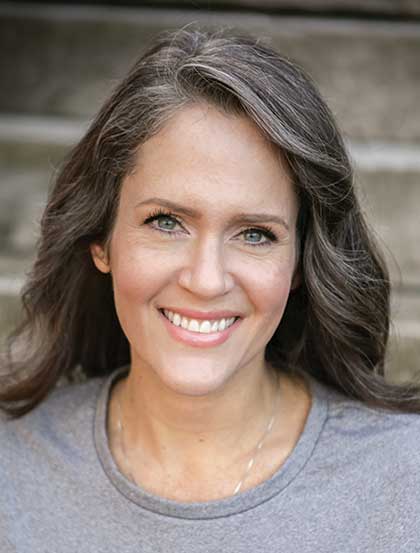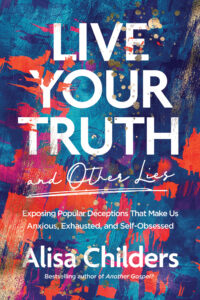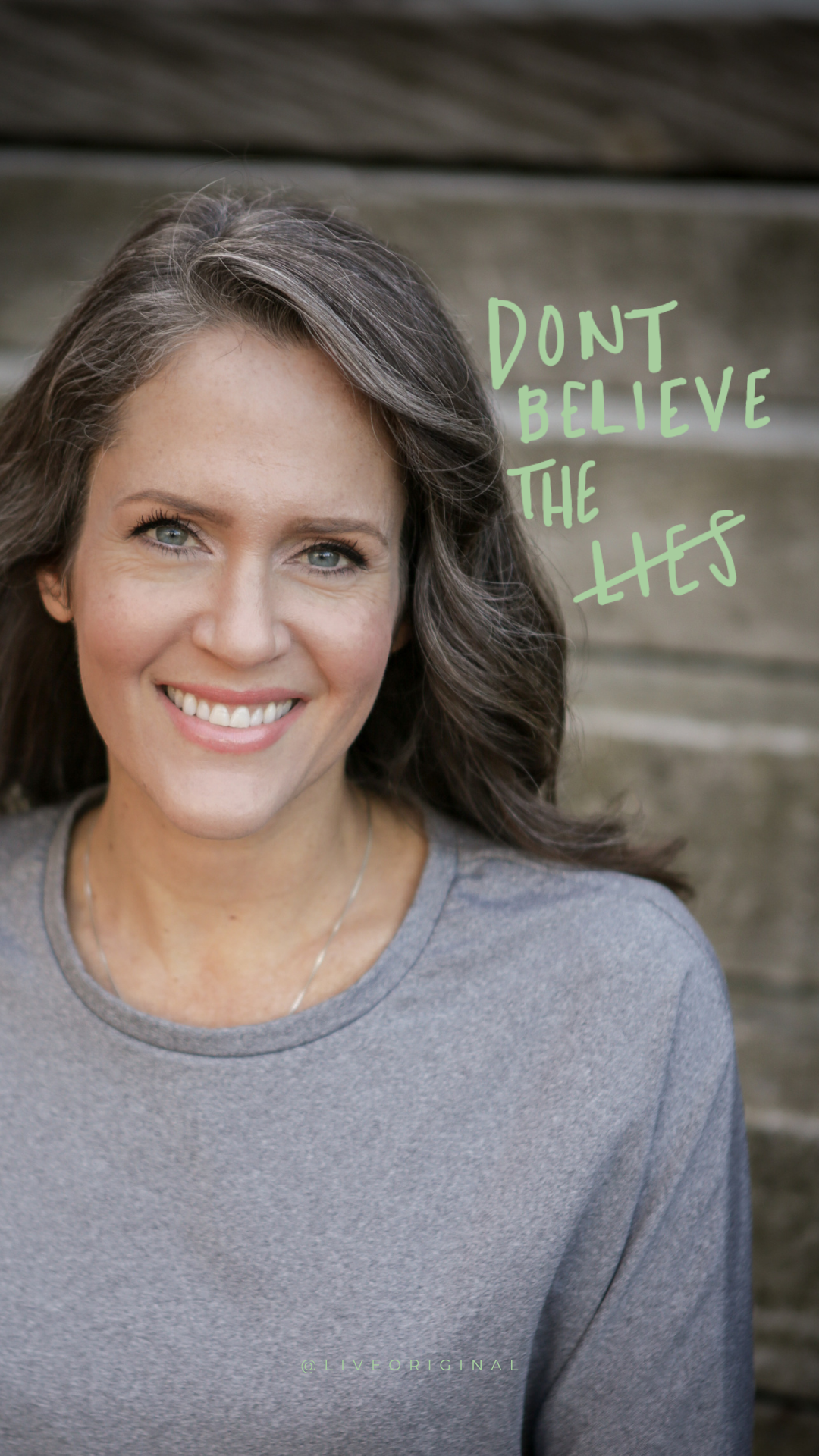
Don’t Believe the Lies
My finger was literally on the button. Everything in me wanted to click Like and Share. Why am I not doing it? I thought. The author of the meme was a Christian, the quote sounded positive and life-affirming, and it would surely encourage and uplift my social media friends. I still can’t do it. But why? With my index finger lightly tapping the top of the computer mouse, I sat pondering my hesitation. Then, in a sudden burst of clarity, the Holy Spirit was all like, “Snap out of it!” Oh yeah. I was hesitating because although this quote sounded nice, it was not biblical. It was actually a lie . . . a happy little lie.
Have you ever found yourself in a similar spot? I can’t tell you how many times I’ve checked social media only to see a message like “Follow your heart.” And I’m thinking, Awww. That’s nice. I hit Like before I have a chance to remember, Oh, wait. The last time I followed my heart it got smashed to bits and took me years of counseling to recover. “Trust your instincts. They never lie.” That one landed me in traffic court.
Are you tired of feeling like you have to check social media to find out what you’re supposed to think? Are you weary of the latest self-help book that promises to set you free but only imprisons you with a laundry list of studies to consider, positive affirmations to recite, Facebook groups to join, causes to advocate for, and other books to read? (It seems as if it were really “self-help,” I shouldn’t need all this outside support!)
In that moment of hesitation over a meme, I realized that there are endless ways truth can be spun, manipulated, covered up, and even used to promote deception. Often, the lie is christened with religious language, so the temptation to share it without thinking is real. As A. W. Tozer said, “Too much of contemporary Christianity is borrowed from the philosophies of the world and even other religions—phrases and mottos that on the surface look great but are not rooted in Scripture or that mostly bolster one’s self-image.”1
These happy little lies are pithy assertions that sound good, safe, optimistic, and constructive. They look great stitched on a pillow, digitized into a meme, or turned into a slogan. They are
usually stated in a positive form, like “Believe in yourself” and “You are perfect just as you are.” You see, the best lies are the ones that sound the most beautiful. They are made up of at least 50 percent truth. Sometimes they are almost totally true. But that small bit that spins the entire outcome? That is the important part.
Our culture is brimming with slogans that promise peace, fulfillment, freedom, empowerment, and hope. These messages have become such an integral component of our American consciousness that many people don’t even think to question them. They sound nice and carry an illusion of truth. Often these messages are popularized by social media celebrities who claim to be Christians, promote their materials as being in agreement with Christian principles, and publish on Christian formats and venues.
The problem? They are lies.
More than ever before, people are looking to their own hearts, opinions, preferences, biases, and predispositions to guide them through life. In other words, we have learned to trust our feelings. But how is that working out for us? It is leading to all sorts of problems. And in so many cases . . . didn’t we get ourselves into this mess in the first place?
Today we have authors, influencers, and life-coach gurus peddling their personal transformation stories as models for others to follow. Their advice is frequently based on very recent life-altering decisions that seem to make them happy in the moment but have not stood the test of time. In some cases, their books come out within a few months of their divorce or after that affair, which they think helped them discover their true selves. And we are supposed to follow these people? Reader. Listen. Please do not take life advice from someone who is in the middle of a major crisis. Unless they are gleaning from time-tested, biblical wisdom and pointing you to Christ, it would be wise to hit the pause button on that hot mess and just wait and see how it all pans out over the next ten years or so.
Taking advice from someone because they’re funny, self-confident, or Instagram savvy makes me think of a hypothetical scenario in the air. I don’t tend to get nervous about flying, because I know that the training pilots go through is rigorous . . . especially when it comes to commercial flying, where the lives of so many citizens are at stake. At the end of the day, I trust the airline industry to keep me safe.
But imagine I step on a plane and just after takeoff the pilot announces, “Good morning, everyone. I’d like to thank you for joining me on my very first flight ever. Not to worry, I’ve
spent quite a few hours in classroom education and flight simulators. Oh, and our copilot couldn’t make it this morning, but I feel confident I’ll do a great job and get you all to your destination safely and on time.” Can you imagine the level of anxiety that would strike the heart of every passenger in that moment? That’s because trust is a huge part of feeling safe and secure.
But what and who can we trust when it comes to knowledge about life, death, goodness, and purpose? I don’t think it’s an exaggeration to say that our culture has never been more divided, polarized, or suspicious. No one knows where they can find reliable information about anything from brownie recipes to personal health to morality to politics.
I think that ditching the jargon and clinging to the timeless truths of the Bible is the most freeing and stabilizing thing we can do. It will ease anxiety, quell depression, and calm a restless heart. Recognizing who we are in Christ is the ultimate self-care because the Word of God doesn’t reinvent itself along with a constantly changing culture. Scripture has stood the test of thousands of years, been endorsed by millions who have been transformed by its truth, and given countless believers a solid foundation for knowing God and living out their faith. We have good evidence from history, archaeology, and biblical scholarship to trust that we have an accurate copy and that what it records is true. Jesus told us in Matthew 24:35 that his words will never pass away. We know from Hebrews 13:8 that Jesus is the same yesterday, today, and forever. He doesn’t change, and his words will remain forever.
In Matthew 7:24, he says, “Everyone then who hears these words of mine and does them will be like a wise man who built his house on the rock.”
As a wise friend once said to me, “I’d rather have a shack on solid ground than a mansion on the sand.”
Will you choose to stand on the unchanging truth of the God-breathed Scriptures, or will you choose whatever trendy catchphrase people are currently obsessed with?
The choice is yours.
 Adapted from Live Your Truth and Other Lies: Exposing Popular Deceptions That Make Us Anxious, Exhausted, and Self-Obsessed by Alisa Childers. Copyright © 2022. Used by permission of Tyndale House Publishers, a Division of Tyndale House Ministries. All rights reserved.
Adapted from Live Your Truth and Other Lies: Exposing Popular Deceptions That Make Us Anxious, Exhausted, and Self-Obsessed by Alisa Childers. Copyright © 2022. Used by permission of Tyndale House Publishers, a Division of Tyndale House Ministries. All rights reserved.
Alisa Childers is a wife, mom, author, podcaster, blogger, speaker, and worship leader. She was a member of the award-winning CCM recording group ZOEgirl. She is currently a respected speaker at apologetics and Christian worldview conferences, as well as the host of her popular YouTube channel. Alisa’s story was featured in the documentary American Gospel: Christ Crucified. She has been published at The Gospel Coalition, Crosswalk, The Stream, For Every Mom, Decision magazine, and The Christian Post, and her blog post “Girl, Wash Your Face? What Rachel Hollis Gets Right . . . and Wrong” received more than one million views.

















